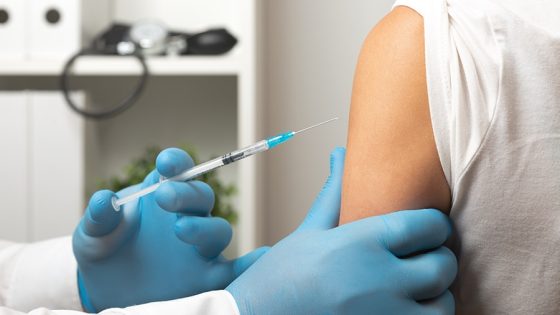
Immunizations Offer Protection
Immunizations are important because they help to protect people from serious diseases. They work by protecting the body against infections before they even occur. When someone is immunized, their body produces antibodies that help to fight off infections. This means that if you or your child ever comes in contact with a disease, your body will be better equipped to fight it off and stay healthy.
Stopping the Spread
Immunizations are also important because they help to prevent the spread of disease. If everyone is immunized against a certain disease, it becomes harder for that disease to spread and infect others. This is especially important for diseases that can be deadly, such as polio or measles. By getting vaccinated, you are not only protecting yourself, but you are also helping to protect the people around you.
Safety
Immunizations are safe and effective, and they are one of the best ways to protect yourself and your family from serious diseases. Vaccines are an essential part of public health, yet their safety is often called into question. It’s important to understand how vaccines are made and tested to ensure their safety. Vaccine manufacturers use a variety of quality control measures to ensure their vaccines are safe and effective. For example, they test the purity of each vaccine batch and screen for contaminants. They also conduct animal studies to evaluate the safety and efficacy of new vaccines. In addition, clinical trials are conducted on human subjects before a vaccine is approved for general use. These trials help to identify any potential side effects. As a result of these rigorous safety testing procedures, vaccines are one of the most closely regulated medical products. The Centers for Disease Control and Prevention (CDC) closely monitors the safety of all vaccines through its Vaccine Safety Datalink program. While no vaccine is 100% effective, they are safe for the vast majority of people. Vaccines play a vital role in protecting public health, and we should continue to support their development and use.
Immunizations by Age
Vaccines are an important part of preventative healthcare for people of all ages. Infants and young children are particularly vulnerable to diseases, so it is recommended that they receive a series of vaccinations starting at 2 months old. The types of vaccines and the recommended schedule vary by country, but the World Health Organization provides standard guidelines. For example, babies in the United States are typically vaccinated against diphtheria, tetanus, pertussis, hepatitis B, polio, and measles, mumps, and rubella. The first dose of each vaccine is usually given at 2 months old, with additional doses given at 4 months, 6 months, and 12-15 months. Older children and adults should also be vaccinated against certain diseases. For example, the CDC recommends that everyone over the age of 6 months receive a flu vaccine every year. Vaccines are an effective way to protect yourself and others from disease.
Vaccines are not just for kids. In fact, vaccines are an important part of staying healthy as an adult. Just like children, adults need to be vaccinated against illnesses such as the flu, measles, and pneumonia. The Centers for Disease Control and Prevention (CDC) recommends that everyone over the age of six months get a flu vaccine every year. Other recommended vaccines vary depending on age, medical conditions, lifestyle, job, and travel plans. For example, people who are 65 or older should get the shingles vaccine to help prevent a painful rash. And if you travel outside the country, you may need to get vaccinated against diseases such as yellow fever or Japanese encephalitis. Adults with certain medical conditions may need to get vaccinated against pneumonia or hepatitis B. So even though you’re an adult, it’s still important to talk to your doctor about which vaccines you might need.
We hope that this blog post has helped to clear up some of the confusion surrounding immunizations. As you can see, they are an important part of staying healthy and protecting yourself and others from serious disease. If you have any questions, be sure to talk to your doctor or healthcare provider. You can visit our website for more information and call to schedule a vaccination appointment for you or your child. Thank You for reading!
- Cultural Competency in Urgent Care: Providing Inclusive Patient Care - April 11, 2025
- Key Facts About Hormone Replacement Therapy and Women’s Wellness - March 24, 2025
- Urgent Care for the Elderly: Specialized Services for Senior Patients - March 24, 2025



